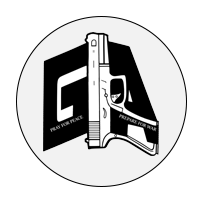Real Estate Agent Safety and Self-Defense
Real estate agents traverse diverse environments, meet numerous strangers, and often work alone, which can put them in precarious situations. By equipping yourself with the right knowledge and skills, you can confidently navigate these challenges. Let’s unravel what safety and self-defense for real estate agents entail.
Understanding the Risks
Your profession as a real estate agent inherently comes with significant safety risks. According to the USCCA, real estate professionals are exposed to a higher probability of violent encounters than many other occupations. Understanding these risks is the first step towards proactive safety measures.
Identifying Job-Related Risks
The daily routine of a real estate agent comprises several activities that can potentially expose you to danger. From meeting clients in isolated properties to hosting open houses, each task has its set of vulnerabilities.
Consider these scenarios:
- Showing Properties: You’re alone with strangers in vacant properties, sometimes in unfamiliar neighborhoods.
- Open Houses: These events allow numerous unknown individuals to wander through a property, making it challenging to keep track.
- Advertisement Listings: Posting photos and detailed descriptions often include your contact information, increasing your visibility to potential threats.
Learning to identify these risk factors can help you develop strategies to mitigate them.
Situational Awareness
Situational awareness is crucial for recognizing and avoiding potential threats. It involves being constantly aware of your surroundings, understanding what’s normal in any given environment, and spotting what isn’t.
Tuning In
Imagine walking through a property. Do you notice the creaky floorboard in the hallway or the window slightly ajar? Practicing situational awareness means your mental radar is always active, picking up these subtle cues. The finer points include:
- Visual Scanning: Regularly scan your environment for anything unusual.
- Environmental Baseline: Know what’s typical in your settings so you can identify out-of-place objects or behaviors.
- Escape Routes: Always be aware of exits and alternative ways to leave a property safely.
Developing situational awareness can significantly enhance your ability to avoid dangerous encounters before they escalate.
Utilizing Technology
In today’s digital age, your smartphone can be a powerful tool for safety. Several apps and built-in features are designed to assist you in emergencies.
Cell Phone Safety Features and Apps
Here are some commonly used cell phone safety features and apps to consider:
| Feature/App | Description |
|---|---|
| Emergency SOS | Quickly call for help and alert contacts without unlocking your phone. |
| Life360 | A family locator app that provides real-time location sharing with trusted people. |
| bSafe | Enables live streaming to your contacts and triggers an SOS alarm. |
| Cognito | Sends GPS location and alerts contacts if you fail to check in at a specified time. |
| Red Panic Button | Sends a panic message along with your location with the press of a button. |
Take time to familiarize yourself with these tools so you can use them effectively when needed.
Stress Response
Understanding how stress affects your body can help you manage it better in high-pressure situations. When confronted with danger, your body undergoes several physiological changes, known as the fight-or-flight response.
Reactions to Stress
- Increased Heart Rate: Your heart pumps faster, preparing your muscles for action.
- Tunnel Vision: Your field of vision narrows, focusing on the threat.
- Adrenaline Surge: Your body floods with adrenaline, enhancing physical abilities temporarily.
Knowing these reactions lets you employ techniques like deep breathing or visualizing safe outcomes to maintain calmness and control.
Defensive Mindset
Developing a proactive mindset means prioritizing personal safety and being prepared to act decisively in dangerous situations. It’s not just about reacting to threats, but about thinking ahead and making safety a habitual part of your daily routine.
Proactive Strategies
- Safety Protocols: Establish a set of rules for meeting clients, such as verifying their identity beforehand or never going alone.
- Communication Plans: Always inform someone of your whereabouts and schedule.
- Self-Awareness: Trust your instincts if something feels off; it probably is.
Cultivating a defensive mindset ensures that you’re always a step ahead, prepared to protect yourself.
Self-Defense Options
When it comes to protecting yourself, you have various self-defense options at your disposal. From physical techniques to non-physical strategies, being prepared is key.
Practical Techniques
The Real Estate Agent Safety and Self-Defense course offers practical self-defense techniques tailored to real-world scenarios you might face. Let’s break them down:
Unarmed Defense:
- Basic Strikes: Learn simple punches and kicks to fend off an attacker.
- Escape Moves: Techniques for breaking free from holds and getting to safety.
Armed Defense:
- Pepper Spray: How to use it effectively.
- Firearms Training: Understanding legal implications and responsible use.
Less Lethal Options:
- Stun Guns: Non-lethal yet effective.
- Personal Alarms: Loud noises to attract attention and deter attackers.
Each method can be tailored to different comfort levels and personal preferences.
Legal Use of Force
Understanding the legal criteria for using force is crucial to avoid adverse consequences.
Legal Criteria
Before you escalate to reasonable or deadly force, certain criteria must be met:
- Imminent Threat: The attacker poses an immediate danger.
- Proportional Response: The level of force is appropriate to the threat.
- Duty to Retreat: In some jurisdictions, you must attempt to avoid conflict if possible.
Knowing these criteria ensures you act within legal boundaries, protecting yourself both physically and legally.
Virtual Range Training
Imagine being able to practice these techniques without real-world risks. Virtual range training offers just that—hands-on practice in a controlled, simulated environment. This kind of training enhances your defensive skills through realistic scenarios.

Course Details
If you’re intrigued by what you’ve read so far, you might want to consider the Real Estate Agent Safety and Self-Defense course offered by Green Line Arms. This comprehensive course is designed specifically with your professional safety in mind.
Course Structure
- Duration: 4 hours
- Format: Interactive classroom training combined with virtual range exercises
- Prerequisites: None required; suitable for all experience levels
- Certification: Receive a course completion certificate
Who Should Attend?
This course is ideal for real estate agents, brokers, and anyone within the property industry looking to enhance their safety skills. Whether you’re a seasoned agent or new to the field, the knowledge and strategies provided will contribute to your overall safety and professional confidence.
By investing in your safety through this course, you gain real-world application and practical skills designed to protect yourself effectively in any situation. Held at Green Line Arms, located at 1350 South Blue Angel Pkwy, Pensacola, Florida 32506, this course provides the peace of mind you need while working in the field.
For more information, call 850-285-0468 or visit Green Line Arms. Remember, “Pray for Peace – Prepare for War.” Your safety is paramount, and being prepared is your best defense.

